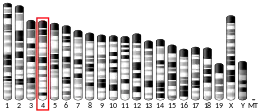SZT2
Seizure threshold 2 homolog is a protein that in humans is encoded by the SZT2 gene.[5]
| SZT2 | |||||||||||||||||||||||||||||||||||||||||||||||||||
|---|---|---|---|---|---|---|---|---|---|---|---|---|---|---|---|---|---|---|---|---|---|---|---|---|---|---|---|---|---|---|---|---|---|---|---|---|---|---|---|---|---|---|---|---|---|---|---|---|---|---|---|
| Identifiers | |||||||||||||||||||||||||||||||||||||||||||||||||||
| Aliases | SZT2, C1orf84, EIEE18, KIAA0467, SZT2A, SZT2B, seizure threshold 2 homolog (mouse), KICSTOR complex subunit, SZT2 subunit KICSTOR complex, SZT2 subunit of KICSTOR complex, DEE18, KICS1 | ||||||||||||||||||||||||||||||||||||||||||||||||||
| External IDs | OMIM: 615463 MGI: 3033336 HomoloGene: 49413 GeneCards: SZT2 | ||||||||||||||||||||||||||||||||||||||||||||||||||
| |||||||||||||||||||||||||||||||||||||||||||||||||||
| |||||||||||||||||||||||||||||||||||||||||||||||||||
| |||||||||||||||||||||||||||||||||||||||||||||||||||
| |||||||||||||||||||||||||||||||||||||||||||||||||||
| Wikidata | |||||||||||||||||||||||||||||||||||||||||||||||||||
| |||||||||||||||||||||||||||||||||||||||||||||||||||
Function
The protein encoded by this gene is expressed in the brain, predominantly in the parietal and frontal cortex as well as in dorsal root ganglia. It is localized to the peroxisome, and is implicated in resistance to oxidative stress. It likely functions by increasing superoxide dismutase (SOD) activity, but itself has no direct SOD activity. Studies in mice show that this gene confers low seizure threshold, and may also enhance epileptogenesis.[5]
Clinical significance
Mutations in this gene have been shown to cause infantile encephalopathy with epilepsy and dysmorphic corpus callosum.[6]
References
- GRCh38: Ensembl release 89: ENSG00000198198 - Ensembl, May 2017
- GRCm38: Ensembl release 89: ENSMUSG00000033253 - Ensembl, May 2017
- "Human PubMed Reference:". National Center for Biotechnology Information, U.S. National Library of Medicine.
- "Mouse PubMed Reference:". National Center for Biotechnology Information, U.S. National Library of Medicine.
- "Entrez Gene: Seizure threshold 2 homolog (mouse)".
- Basel-Vanagaite L, Hershkovitz T, Heyman E, Raspall-Chaure M, Kakar N, Smirin-Yosef P, Vila-Pueyo M, Kornreich L, Thiele H, Bode H, Lagovsky I, Dahary D, Haviv A, Hubshman MW, Pasmanik-Chor M, Nürnberg P, Gothelf D, Kubisch C, Shohat M, Macaya A, Borck G (Sep 2013). "Biallelic SZT2 mutations cause infantile encephalopathy with epilepsy and dysmorphic corpus callosum". American Journal of Human Genetics. 93 (3): 524–9. doi:10.1016/j.ajhg.2013.07.005. PMC 3769928. PMID 23932106.
Further reading
- Xie H, Diber A, Pollock S, Nemzer S, Safer H, Meloon B, Olson A, Hwang JJ, Endress GA, Savitsky K, Gill-More R (Apr 2004). "Bridging expressed sequence alignments through targeted cDNA sequencing". Genomics. 83 (4): 572–6. doi:10.1016/j.ygeno.2003.07.003. PMID 15028280.
- Chen L, Madura K (Jun 2006). "Evidence for distinct functions for human DNA repair factors hHR23A and hHR23B". FEBS Letters. 580 (14): 3401–8. doi:10.1016/j.febslet.2006.05.012. PMID 16712842.
- Seki N, Ohira M, Nagase T, Ishikawa K, Miyajima N, Nakajima D, Nomura N, Ohara O (Oct 1997). "Characterization of cDNA clones in size-fractionated cDNA libraries from human brain". DNA Research. 4 (5): 345–9. doi:10.1093/dnares/4.5.345. PMID 9455484.
This article incorporates text from the United States National Library of Medicine, which is in the public domain.



